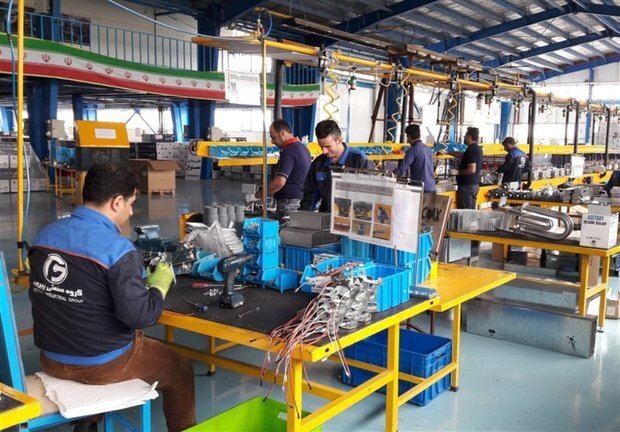Strengthening domestic production has become a major focus of the Iranian government in the past few years, as the country is determined to nullify the US sanction on its economy through boosting production to reach more and more self-reliance.
The current Iranian calendar year (began on March 20) is named the year of “Surge in Production” by the Leader of Islamic Revolution Ayatollah Seyed Ali Khamenei, while the Leader had named the previous year as the year of “Pick up in Production”, something that came true in all economic and industrial sectors through cooperation between the state-run bodies and private sector.
In this regard, all ministries besides the private sector have been outlining their programs and strategies for realizing this year’s motto.
Having the most effective role in the country’s economic and industrial development, the Industry, Mining, and Trade Ministry has been among the first government bodies that started the movement toward the mentioned goal.
Indigenizing the knowledge for the production of various industrial sectors’ necessary equipment and machinery has been a very significant and positive step that the mentioned ministry has taken in this regard.
On Friday, Deputy Industry Minister Saeed Zarandi said that his ministry plans to save the country over $8 billion by indigenizing the knowledge for the production of more than 210 products that are currently being imported into the country.
Zarandi noted that to introduce the products required by various sectors a website has been established in which investors can find all the information they would need regarding the sectors, the products, and the companies already working on indigenizing the required products.
According to the official, the ministry is also planning on reviving more than 2,200 idle industrial units across the country, of which so far 760 units have been put back into operation.
He said another step taken in the movement for boosting domestic production has been supporting knowledge-based companies.
“We have already paid over 2 trillion rials (over $47 million) of facilities to more than 137 knowledge-based companies that had contracts signed with the country’s industrial sector,” he said.
Back in 2019, the deputy industry, mining, and trade minister for industry affairs announced that the ministry defined 40 trillion rials (about $952 million) worth of projects to be awarded to the knowledge-based companies for indigenization of the auto industry equipment and machinery.
According to Mehdi Sadeghi Niaraki, aimed at boosting the domestic production of auto parts and equipment, these projects are defined to be implemented by companies and institutes that are on the cutting edge of knowledge and technology.
As for the programs in the current year, the Industry Ministry has announced the setting up of four domestic production promotion desks in the fields of petrochemicals, refining, auto, and home appliance industries in which deals will be signed for indigenizing €245 million worth of equipment in the said sectors.
Of the mentioned figure, €60 million is related to the petrochemical industry, €80 million is pertaining to the refining industry, €63 million is related to the home appliance industry and €42 million is for the automotive industry.
According to the Iranian Industry, Mining and Trade Ministry data, relying on domestic production has saved Iran €1.045 billion since the implementation of the ministry’s program in this regard, in the previous Iranian calendar year (ended on March 19) during which 11 desks had been set up on the matter.
The mentioned program for establishing domestic production promotion desks was defined by the government to supply products, equipment, and machinery needed in various industrial fields using the capacities of the domestic producers and to increase self-sufficiency in the mentioned areas.
This article was first published by the Tehran Times.
